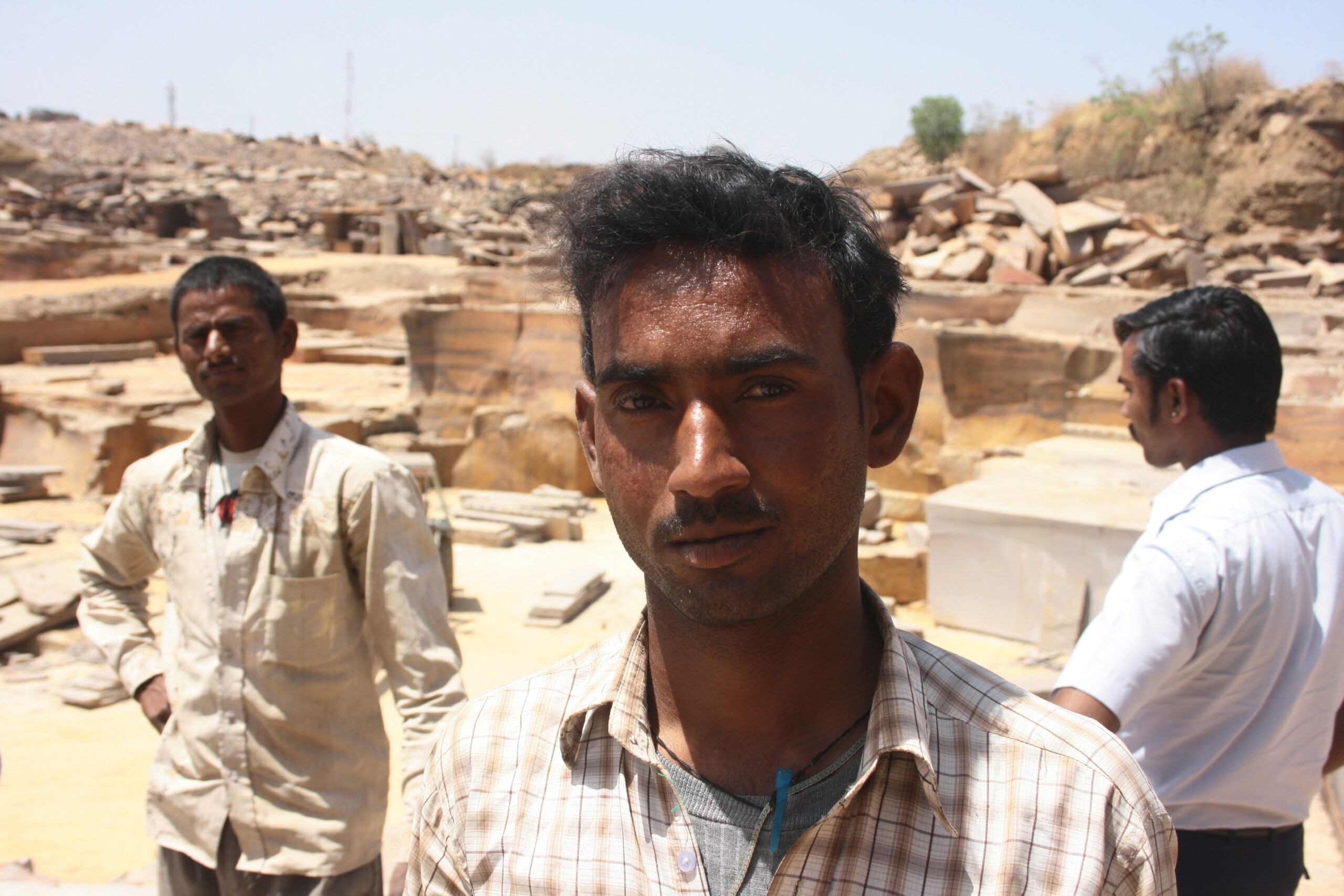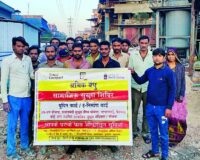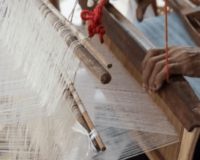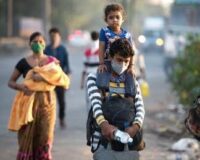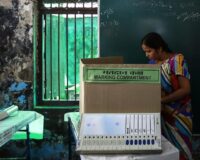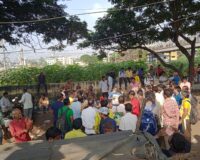In addition to our reports and academic work on the the difficulties faced by workers, and specifically migrant workers; we have also written extensively for news media, websites and blogs in the last two years. Read our reports here and find a short summary of what we wrote in 2021 below.
January
This article is based on a statement by Aajeevika Bureau when 15 migrants from Rajasthan, who were dwelling in the streets in Surat, were killed by a truck when they were sleeping by the roadside. The joint statement also mentions that the deaths are an outcome of policy lapses and are not an isolated incident. The statement also stresses on the need for moving beyond compensations and condolences towards concrete steps to ensuring the lives of migrant workers are safeguarded.
February
The author implores readers to look beyond the horrifying case of 15 workers being run over by a dumper truck and investigate the reasons which force workers to seek work far away from home. Only then can the issues of workers in rural and urban areas be addressed effectively. The author describes the life of a migrant worker and his family who succumbed to the accidents in Surat and also informs us about the demographic profile of their village and the district it falls under. The number of BPL families in rural Rajasthan is a staggering 50%. The author concludes by asking why the families are forced to move to cities for work and that this phenomenon is a consequence of a defunct welfare system, acute rural distress and highly coerceive rural social order.
May
This article is based on an Aajeevika Bureau survey of 120 people in Ahmedabad, which found that the public distribution system is crucial for improving access to food for India’s poor. The author argues that the findings in the study make it imperative to unconditionally facilitate access to subsidised food for workers who are away from their homes. The study also finds that the migrant workers spend more than middle class consumers due to retail purchases in small quantities. Lack of portability of ration cards, deletion of names from the PDS, poor levels of distribution of allocated food grains for migrant workers, cancellation of ration cards in villages upon availing rations in cities are also some of the struggles that mar the smooth functioning of the One Nation One Ration dream.
Addressing vaccine hesitancy among workers, another colleague discusses the situation in Surat, where the work atmosphere is not conducive to vaccinated workers, and misinformation and mistrust are causing panic among the workers. Bereft of paid leaves and job security, the workers have no choice but to prioritise their livelihood over their health. The author is also critical of putting the responsibility of following covid protocols solely on workers without criticising the municipal administration and the employers for failing to provide hygienic and safe working conditions.
This article sheds light on shortage of healthcare workers, inadequate testing and infrastructure treatment infrastructure and their severe impact on people’s lives during the pandemic. Treatment kits are inadequate, medicines are in short supply or not available at all, punitive measures are introduced by the government in the event of rising cases and inoculation is proving extremely difficult in the hinterland. The lack of adequate data is also a cause for major concern which according to the author calls for accurate data collection and resource allocation to address the health crisis underway.
This article is a reflective piece on one year of the covid induced lockdown, elaborating how the work conditions and life conditions of the workers in the city of Surat has become harder with job scarcity, food scarcity, housing scarcity, scarcity of adequate sanitation facilities rendering them even more vulnerable and unsafe. The author describes the life and struggles of Shamliben from South Rajasthan, one among the many migrant workers who migrated to Gujarat for work due to rural distress and poverty.
June
This article argues for prioritising informal workers in the vaccination strategy as they are less likely to be vaccinated due to the reliance on technology, which denies digitally illiterate workers vaccination. Informal workers are also susceptible to other co-morbidities and health risks like TB which they cannot treat effectively due to job insecurity. The authors appeal to employers to help vaccinate workers, especially those working in homes of their employers like domestic workers. Routing vaccines through small and medium employers would however prove to be difficult, many of whom are struggling to scrape up enough money due to the pandemic induced lockdowns.
This article highlights the failure of relief and support systems, massive job losses, reduced food intake among workers in Gujarat based on a rapid survey conducted by Aajeevika Bureau. It highlights how during the second lockdown, relief and social protection for migrant workers was not prioritised. Weekly earnings fell, rations and cash dried up and up to 27% reported having health problems including Covid. Workers demand support to pay rent, school fees, medical bills and electricity bills. The authors write about the necessity of having urban employment schemes as initiated by several states which is also echoed by the respondents to the survey.
This article begins by highlighting the recent Supreme Court order on completion of the National Database for Unorganized Workers by the Central Government. The authors welcome the move and emphasize the need for such a database. They also suggest that making registration mandatory for access to social protection can have a negative impact on the workers. The authors are critical of digitization of this registration process because of its accessibility for migrant workers and also because other digital databases have not been accessible to workers E.g. the BOCW Database in Karnataka. The authors propose universalisation of social security, involvement of volunteers for the registration of unorganized workers and inclusive policy making to recognise workers during the pandemic to avoid delay in disbursal of immediate assistance for them.
This article talks about the condition of migrant workers during the second wave in Gujarat, their lack of access to health care facilities and vaccination based on a study conducted by Aajeevika Bureau. They struggled to find treatment, sought support from employers and were forced to borrow heavily to cover medical costs due to wage loss and job losses. In the absence of wage security, they found themselves trading off safety for sustenance. The article also questions the efficacy of Ayushman Bharat and PMJAY.
August
The Lockdown, along with the lack of social protection and inadequate relief responses, has affected the working poor even more severely than the pandemic. This essay focuses on the problems and limitations arising from the mainstreaming of short term support mechanisms as opposed to long term universal social protection. The articles looks at the poor delivery mechanisms under PDS which kept many out of reach from basic food grains during the lockdown, lack of enforceable solutions to the fear of evictions and homelessness, relief packages being meager as compared with the impact of loss of work and cash transfers being far below the daily minimum wage rate.
This article focuses on the power looms in Surat, Gujarat, where workers are suffering due to poor implementation of labour laws by employers, and weak enforcement and neglect by lawmakers, unscrupulous industrial practices and absence of rigorous monitoring mechanisms. The power loom sector, the authors argue, is rife with wage theft, arbitrary dismissal and denial of minimum wage. It is based on a study conducted by Aajeevika Bureau and Urban Management Center, Ahmedabad among powerloom workers in different industrial clusters in the city.
September
This article focuses on the underestimation of many minor industrial accidents and injuries, which mostly go unreported and unrecorded. It is based on a study conducted by Aajeevika Bureau titled “Looking beyond fire extinguishers” and mentions several instances of accidents and injuries at several factories giving a glimpse into the unsafe working conditions of informal workers. Our colleague calls on the State to guarantee provision of decent work conditions and to enforce the Factories Act instead of diluting it. The solution to the crisis as proposed by the authors is long term planning, policy making specifically geared towards migrant workers and a task force employed specifically to map the situation of migrant workers in the aftermath of the pandemic.
–This compilation has been prepared by T Lalita , who currently interns at Aajeevika Bureau‘s Bangalore office.

